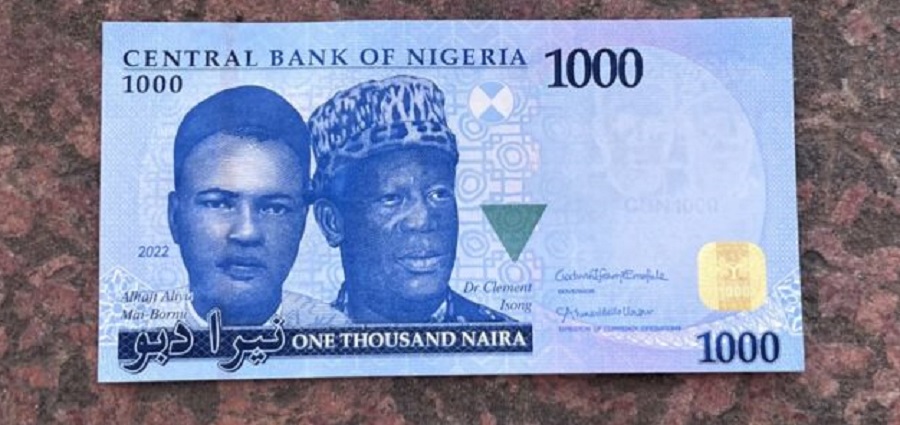General News
World Bank Gives $150m to 10 Nigerian Varsities, Others

The World Bank’s Board of Executive Directors has approved $150 million to finance 19 university-based Centres of Excellence in seven countries in West and Central Africa, 10 of which are Nigerian universities.
According to the World Bank, these competitively selected centres will receive funding for advanced specialised studies in science, technology, engineering and mathematics (STEM)-related disciplines, as well as in agriculture and health.
This landmark Africa Centers of Excellence (ACE) project, which will equip young Africans with new scientific and technical skills, will be financed through IDA credits to the governments of Nigeria (US$70 million), Ghana (US$24 million), Senegal (US$16 million), Benin, Burkina Faso, Cameroon, and Togo (US$8 million each).
The Gambia will also receive a US $2 million credit and a US$1 million grant to provide higher education, including short-term training, to students, faculty and civil servants through the 19 ACEs.
The 10 universities benefiting from the facility in Nigeria include Ahmadu Bello University, Zaria, Universities of Benin, Jos, and Port Harcourt as well as Bayero University.
Others are Obafemi Awolowo University; Federal University of Agriculture; African University of Science and Technology; Benue State University and Redeemers University.
“I am excited to support these pioneering centres of excellence because they will be another step in building and nurturing specialized world-class higher education institutions on the continent,” said Makhtar Diop, World Bank Vice-President for Africa.
“I can think of no better way to grow African economies, create jobs, and support research in Africa, than educating young graduates with expertise in high-demand areas such as chemical engineering, crop science, and the control of infectious diseases.”
The continent faces a serious shortage of skilled workers in fast-growing sectors such as extractive industries, energy, water, and infrastructure, as well as in the fields of health and telecommunications.
The result of having too few skilled workers in Africa’s extractive industries is that oil and minerals are extracted in Africa but processed elsewhere in the world, to the detriment of African industries and jobs.
Africa also suffers from a shortage of trained health workers who can provide high quality maternal health services.
This may partially explain why Africa’s maternal mortality rate has remained so tragically high at 500 maternal deaths per 100,000 live births.
Further, Africa needs its own research and innovative solutions to tackle its development challenges including climate change, which calls for urgent measures to increase yields in agriculture; and infectious diseases, which continue to exact a heavy toll on families and economies.
However, the researcher-to-population ratio is very low in African countries. Burkina Faso, for example, has 45 research and development (R&D) specialists per million people, and Nigeria has 38, in comparison to an average of 481 in Latin America and 1,714 in East Asia.
The new Bank-financed ACEs offer a regionally integrated way to increase high-quality R&D services that will help meet these challenges, yet are efficient and economical given limited public budgets. Coordination and knowledge-sharing among the 19 ACEs will be managed through the Association of African Universities (AAU), which has received a US$5 million grant for this purpose, and is an important regional partner.
“Students in West and Central Africa urgently need high-quality science and technology programs to compete in their own regional job market as well as the global economy, but not a single university from this part of Africa features in rankings of the world’s top 500 universities.
“The African Centers of Ex
General News
NBA Africa Urges Entrepreneurs to Apply for Funding

NBA Africa, the local affiliate of the NBA basketball brand in the US, has announced the second edition of Triple-Double: NBA Africa Start-up Accelerator, which aims to promote the continent’s technology ecosystem and the next generation of entrepreneurs.

The NBA Africa Startup Accelerator will strengthen Africa’s technology ecosystem by providing mentorship and investment to the next generation of African tech entrepreneurs.
The organisation announced the initiative would once again be administered by ALX Ventures, a technological incubator that equips the continent’s innovators in technology with the knowledge and tools they need to develop and scale their enterprises.
Furthermore, NBA Africa named ServiceNow, an AI platform for business transformation whose Now Assist and AI agents help organisations in delivering ‘faster and smarter experiences’ at scale, as an official program partner.
The organisation stated that startups can apply to participate at tripledoubleaccelerator.nba.com until Friday, August 29, following which the applications will be filtered down to a top 10 list.
The shortlisted startups will then participate in a 10-week mentorship program, where they will be paired with mentors from NBA Africa, ServiceNow, and ALX leadership, as well as other corporate stakeholders, who will advise the companies on product development, business growth, and go-to-market strategy.
The finalists will next present their technologies to international industry professionals at the program’s second Demo Day in December, when the top five prize-winning companies will be chosen to receive financial assistance and mentorship.
“Last year’s inaugural Triple-Double Accelerator program showed how much talent, passion and creativity there is among African entrepreneurs who are shaping the future of the continent’s rapidly growing sport and entertainment industries,” said NBA Africa CEO Clare Akamanzi. “We look forward to reviewing this year’s submissions and to helping another round of promising startups take the next step in their development.”
Last year, almost 700 early-stage African entrepreneurs applied to the program.
Ten finalists were then chosen to pitch their products to a panel of international industry leaders at the program’s first Demo Day, which took place at the NBA headquarters in New York City.
Four prize-winning companies – Festival Coins (Nigeria), Salubata (Nigeria), HustleSasa (Kenya), and UBR VR (Egypt) – were awarded financial support and mentorship.
General News
Customs Ditches Fast Track Scheme for Authorised Economic Operator

Nigeria Customs Service (NCS) is transitioning to its Authorised Economic Operator (AEO) Programme, meant to ease trade processes, after over a decade under the Fast Track Scheme.

The service is racing to meet international best practices under the World Customs Organisation’s (WCO) SAFE Framework of Standards, and contained in Sections 108 to 111 of the Nigeria Customs Service Act, 2023.
The programme, the Service said, is expected to reward “trusted traders” who meet specified “compliance, financial, and security criteria.”
Approved operators will benefit from “pre-arrival clearance, minimal inspection, expedited release, and possible mutual recognition with other customs administrations.”
“The scheme is also designed to build trust, ensure cargo integrity, and enhance the predictability and transparency of Nigeria’s import-export operations,” the Service said.
The current Fast Track Scheme, implemented by the Service in 2013 under a more limited eligibility model and was upgraded to an online-based model called Fast Track 2.0, introduced in 2023. The scheme will be officially decommissioned on 31 December 2025.
“All beneficiaries currently enrolled in the Fast Track Scheme are mandated to initiate their migration to the AEO Compliance Programme by submitting their applications through the dedicated portal,” Customs said, adding that only companies approved under the AEO Programme will continue to enjoy trade facilitation privileges previously accorded under the Fast Track scheme.
“AEOs may include manufacturers, importers, exporters, brokers, carriers, consolidators, intermediaries, ports, airports, terminal operators, integrated operators, warehouses, distributors and freight forwarders,” The Service wrote in a handbook.
It requires that an applicant for AEO certification must be an Economic Operator in the international supply chain.
It also added that “The applying entity must be registered with the Corporate Affairs Commission (CAC), with a registration period of at least 5 years for AEO Security and Safety (AEO-S) and a minimum of 3 years for AEO Customs Simplification (AEO-C).”
The company must hold a valid Tax Clearance Certificate, with a minimum coverage of 5 years for AEO Security and Safety (c) and at least three years for AEO Customs Simplification (AEO-C).
The company must also provide an audited financial report for a minimum of five years for AEO Security and Safety (AEO-S) and at least three years for AEO Customs Simplification (AEO-C).
Relevant operational licences must also be provided alongside other relevant regulatory certifications (ISO certifications, SON, NAFDAC, etc.).
AEO-S applicants must also require ISO 28001–an international standard that defines the requirements of the Supply Chain Security Management System and provides a management model for organisations seeking to implement it.
General News
NOA Warns of Fake N1000 Notes in Circulation, How to Identify Them

National Orientation Agency (NOA) in Kwara has cautioned the public on fake N1000 notes circulating in the state.

Alhaji Abdulganiyu Dare, state director of NOA, disclosed this in a statement issued in Ilorin.
Dare emphasised the need for vigilance among residents and business owners in the state.
According to him, there is confirmed intelligence reports of syndicates flooding the area with counterfeit currency with batch numbers 364232 and 898248.
Dare said the counterfeit notes can be identified by their blurred portraits, watermarks, and irregular security features.
He urged the public to be cautious when handling large sums of money.
“The syndicates behind this crime exploit peak commercial hours in major local markets to carry out transactions with counterfeit notes.
“They target unsuspecting POS operators and merchants by defrauding them of their hard-earned money.
“NOA Kwara Directorate is committed to sensitising the public on the dangers of fake currency and the importance of verifying the authenticity of banknotes.
“The agency is working tirelessly to ensure that residents of Kwara are protected from financial scams,” he said.
While describing the crime as unpatriotic and capable of distorting the Nigerian economy, Dare said NOA would work closely with security agencies to bring the culprits to book.
The director advised residents to report any suspicious transactions or individuals to the authorities immediately.
“Together, we can build a safer and more secure financial environment for all residents of Kwara.
“By working together, the NOA and the public can prevent the circulation of fake currency and protect the financial interests of Kwara residents,” he said.

 General News3 days ago
General News3 days agoNOA Warns of Fake N1000 Notes in Circulation, How to Identify Them

 Telecom3 days ago
Telecom3 days agoMTN @ First-ever CED, Pledges to Address Subscribers’ Concerns

 E-Financial3 days ago
E-Financial3 days agoWest Africa Emerging as Crypto Adoption Epicentre- SEC Boss

 Telecom2 days ago
Telecom2 days agoNCC to Sanction Operators over Regulatory Violations

 General News3 days ago
General News3 days agoNCC, IHS Towers Lead Others To NITRA-ALTON CNII & Telecom Sustainability Conference 2025

 Telecom3 days ago
Telecom3 days agoAirtel Nigeria Raises Infrastructure Spending to $39m

 General News2 days ago
General News2 days agoCustoms Ditches Fast Track Scheme for Authorised Economic Operator

 Broadcasting3 days ago
Broadcasting3 days agoGovernment of Ghana Slams MultiChoice, Insists on DStv Price Cut

























